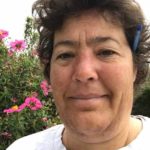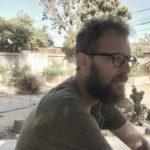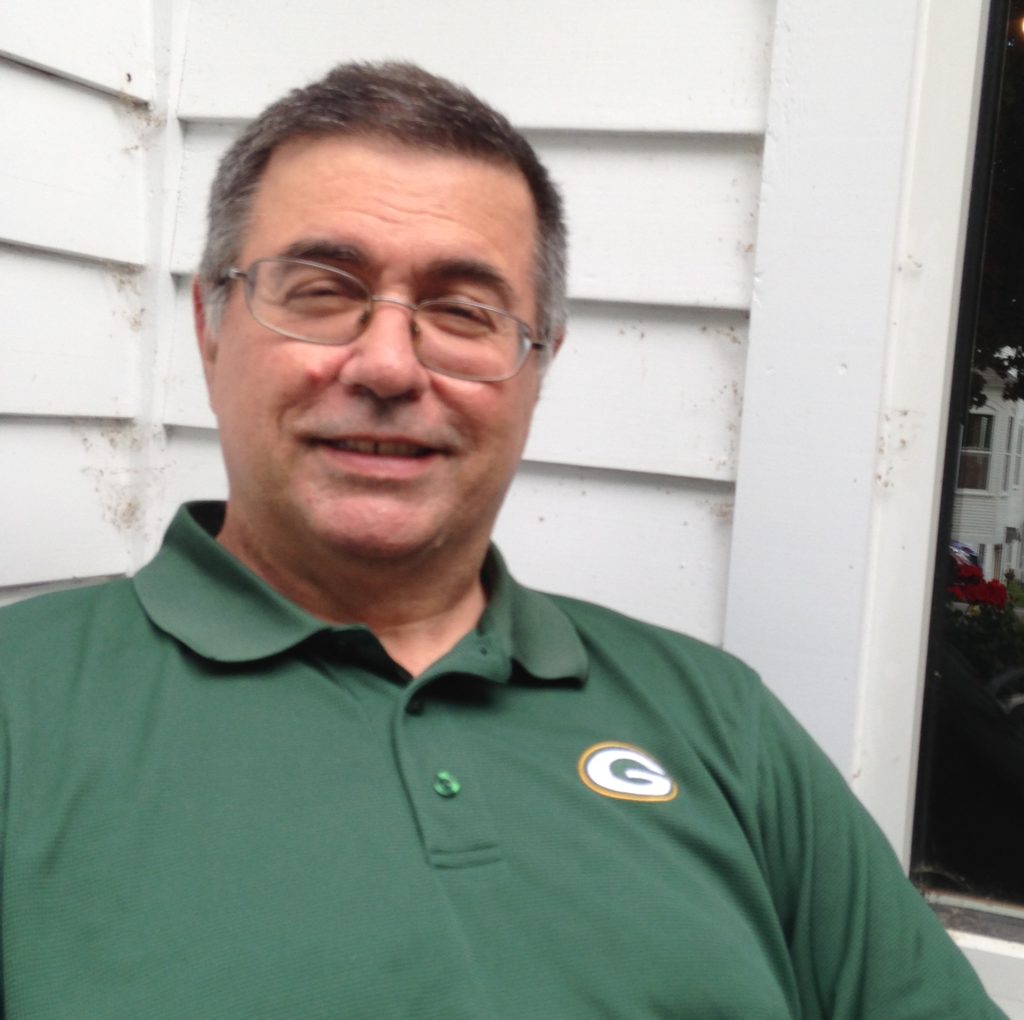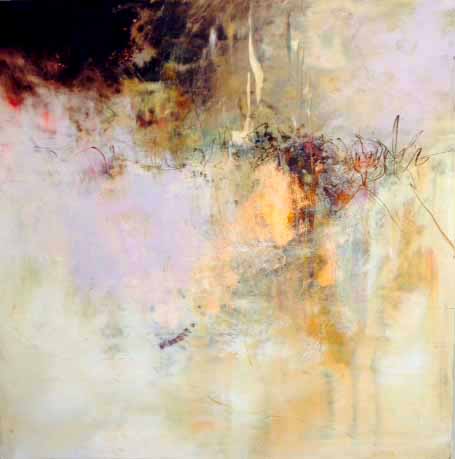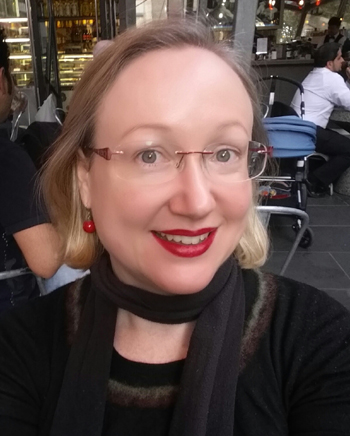 Faye Brinsmead (The Museum of Salt-Encrusted Objects) lives in Canberra, Australia. A lawyer by day, she writes flash fiction in all the snippets of time she can find. Recent work appears in MoonPark Review, The Cabinet of Heed, Twist in Time Literary Magazine, Reflex Fiction and The Ekphrastic Review. She tweets @ContesdeFaye.
Faye Brinsmead (The Museum of Salt-Encrusted Objects) lives in Canberra, Australia. A lawyer by day, she writes flash fiction in all the snippets of time she can find. Recent work appears in MoonPark Review, The Cabinet of Heed, Twist in Time Literary Magazine, Reflex Fiction and The Ekphrastic Review. She tweets @ContesdeFaye.
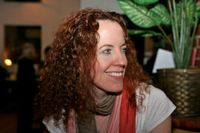 Jennifer Campbell (Diving In) is an English professor in Buffalo, NY, and a co-editor of Earth’s Daughters. She has two full-length poetry collections, Supposed to Love and Driving Straight Through, and was a finalist in both the 2017 Fairy Tale Review Poetry Contest and the 2014 River Styx International Poetry Contest. Several of her poems appear in journals such as Pinyon Review, Little Patuxent Review, The Healing Muse, Sow’s Ear, Comstock Review, Pennsylvania English, Saranac Review, Oyez Review, and Fugue, and her work is forthcoming in the AROHO Waves Anthology.
Jennifer Campbell (Diving In) is an English professor in Buffalo, NY, and a co-editor of Earth’s Daughters. She has two full-length poetry collections, Supposed to Love and Driving Straight Through, and was a finalist in both the 2017 Fairy Tale Review Poetry Contest and the 2014 River Styx International Poetry Contest. Several of her poems appear in journals such as Pinyon Review, Little Patuxent Review, The Healing Muse, Sow’s Ear, Comstock Review, Pennsylvania English, Saranac Review, Oyez Review, and Fugue, and her work is forthcoming in the AROHO Waves Anthology.
 Patsy Creedy (Cardiff by the Sea) lives in San Francisco, waiting with dread for the next wave of millionaires to arrive. She has an MA and an MFA in creative writing from San Francisco State. She worked for many years as a labor and delivery nurse helping women have babies at UCSF. She has published poems in Transfer Magazine, Dragon’s Leap and Inlandia. She has published some nonfiction work and recently completed a memoir about her brother who died of alcoholism. She co-leads an occasional writer’s workshop, “Writing the Way,” at the San Francisco Zen Center. She was a board member and speaker for several years at the SF Zen center for the Meditation and Recovery group that meets most Monday nights.
Patsy Creedy (Cardiff by the Sea) lives in San Francisco, waiting with dread for the next wave of millionaires to arrive. She has an MA and an MFA in creative writing from San Francisco State. She worked for many years as a labor and delivery nurse helping women have babies at UCSF. She has published poems in Transfer Magazine, Dragon’s Leap and Inlandia. She has published some nonfiction work and recently completed a memoir about her brother who died of alcoholism. She co-leads an occasional writer’s workshop, “Writing the Way,” at the San Francisco Zen Center. She was a board member and speaker for several years at the SF Zen center for the Meditation and Recovery group that meets most Monday nights.
 Laura English (A Healing Unto Death) posts a daily blog called Eat More Life (https://eatmorelife.weebly.com), a healing space for women living with anorexia. On Sunday afternoons, she teaches writing to people from all walks of life. Work has appeared in dozens of magazines including minnesota review, Sow’s Ear, Cider Press Review, Adanna, and Straylight. A chapbook, Graves Too Small to Be Red (Finishing Line Press) was published last year.
Laura English (A Healing Unto Death) posts a daily blog called Eat More Life (https://eatmorelife.weebly.com), a healing space for women living with anorexia. On Sunday afternoons, she teaches writing to people from all walks of life. Work has appeared in dozens of magazines including minnesota review, Sow’s Ear, Cider Press Review, Adanna, and Straylight. A chapbook, Graves Too Small to Be Red (Finishing Line Press) was published last year.
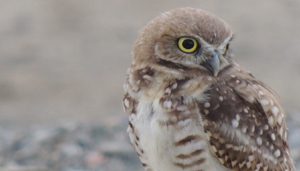 Soramimi Hanarejima (New Hierarchy) is a writer of innovative fiction and the author of Visits to the Confabulatorium, a fanciful story collection that Jack Cheng said, “captures moonlight in Ziploc bags.” Soramimi’s recent work can be found in The Best Asian Speculative Fiction 2018, KYSO Flash and Book XI.
Soramimi Hanarejima (New Hierarchy) is a writer of innovative fiction and the author of Visits to the Confabulatorium, a fanciful story collection that Jack Cheng said, “captures moonlight in Ziploc bags.” Soramimi’s recent work can be found in The Best Asian Speculative Fiction 2018, KYSO Flash and Book XI.
 Ellen Tovatt Leary (Repossessed) spent twenty years acting on the professional stage. She performed in theaters from the Ahmanson in Los Angeles to the State Theatre in Lincoln Center, including four Broadway, many off-Broadway and regional theaters. She worked with Hal Prince, Maureen Stapleton and James Hammerstein among others. She graduated from Antioch College and was a Fulbright scholar at LAMDA. Her first book, a memoir, Mother Once Removed, details her childhood growing up on Bleecker Street in Greenwich Village in the 1940s with an eccentric, divorced mother. She was on the writing staff of the Carnegie Hill News in New York for fourteen years. She has published short stories as well as poems, is a native New Yorker who currently resides, with her husband, in LA.
Ellen Tovatt Leary (Repossessed) spent twenty years acting on the professional stage. She performed in theaters from the Ahmanson in Los Angeles to the State Theatre in Lincoln Center, including four Broadway, many off-Broadway and regional theaters. She worked with Hal Prince, Maureen Stapleton and James Hammerstein among others. She graduated from Antioch College and was a Fulbright scholar at LAMDA. Her first book, a memoir, Mother Once Removed, details her childhood growing up on Bleecker Street in Greenwich Village in the 1940s with an eccentric, divorced mother. She was on the writing staff of the Carnegie Hill News in New York for fourteen years. She has published short stories as well as poems, is a native New Yorker who currently resides, with her husband, in LA.
 Ellen Lord (Relative Sanity) is a Michigan native. Her poetry has appeared in Open Palm Print Magazine, Peninsula Poets Chapbooks and Traverse Area District Library Poets Night Out chapbooks. She was the recipient of the Mike McGuire Poetry Prize in 2019 and won the Landmark Books Haiku Contest in 2017. She is a member of the Fresh Water Poets Group in Traverse City and the Charlevoices Writers’ Group in Charlevoix. She is a behavioral health therapist and loves working with folks who navigate the murky perimeters of mainstream society.
Ellen Lord (Relative Sanity) is a Michigan native. Her poetry has appeared in Open Palm Print Magazine, Peninsula Poets Chapbooks and Traverse Area District Library Poets Night Out chapbooks. She was the recipient of the Mike McGuire Poetry Prize in 2019 and won the Landmark Books Haiku Contest in 2017. She is a member of the Fresh Water Poets Group in Traverse City and the Charlevoices Writers’ Group in Charlevoix. She is a behavioral health therapist and loves working with folks who navigate the murky perimeters of mainstream society.
 Welton B. Marsland (The Australian Valiant in Its Natural Habitat) is a queer-punk writer from Melbourne, Australia whose stories, poetry & more have appeared in many local & international markets. Debut novel “By the Currawong’s Call”, set in 1890s Australia, recently won the Romance category at the 2018 Bisexual Book Awards in New York and is available through harpercollins.com.au Twitter: @wbmarsland Website: weltonbmarsland.com
Welton B. Marsland (The Australian Valiant in Its Natural Habitat) is a queer-punk writer from Melbourne, Australia whose stories, poetry & more have appeared in many local & international markets. Debut novel “By the Currawong’s Call”, set in 1890s Australia, recently won the Romance category at the 2018 Bisexual Book Awards in New York and is available through harpercollins.com.au Twitter: @wbmarsland Website: weltonbmarsland.com
 Amie McGraham (Training Wheels) grew up on an island in Maine and now lives in the desert southwest. A freelance writer, family caregiver and petsitter, she received her BA in English from Arizona State University. Her fiction has been short-listed for the Fulton Prize, New Guard Review and The Offbeat and she was a two-time semi-finalist in Tucson’s Festival of Books Literary Awards. Her work has appeared in Exposition Review, Motherwell, Women on Writing, The Caregiver Space, Wanderlust Journal, Creative Nonfiction, Best Friends Animal Society and elsewhere. Her flash blog, “This Demented Life,” was featured by AlzAuthors and is read internationally.
Amie McGraham (Training Wheels) grew up on an island in Maine and now lives in the desert southwest. A freelance writer, family caregiver and petsitter, she received her BA in English from Arizona State University. Her fiction has been short-listed for the Fulton Prize, New Guard Review and The Offbeat and she was a two-time semi-finalist in Tucson’s Festival of Books Literary Awards. Her work has appeared in Exposition Review, Motherwell, Women on Writing, The Caregiver Space, Wanderlust Journal, Creative Nonfiction, Best Friends Animal Society and elsewhere. Her flash blog, “This Demented Life,” was featured by AlzAuthors and is read internationally.
 Melissa McKinstry (The Hippocratic Oath) grew up on small farms outside of Portland, Oregon, and Seattle, Washington, learning how things grow and how people take care of each other in small communities. She is currently a student in the MFA poetry program at Pacific University. Her poetry has appeared in The Seattle Review and Quaint Canoe, EcoPoetry Washington, and is forthcoming in the first issue of Heirlock. She works to follow the advice of poet Joe Millar: “Sanctify yourself as a poet. Sit down and write every day.”
Melissa McKinstry (The Hippocratic Oath) grew up on small farms outside of Portland, Oregon, and Seattle, Washington, learning how things grow and how people take care of each other in small communities. She is currently a student in the MFA poetry program at Pacific University. Her poetry has appeared in The Seattle Review and Quaint Canoe, EcoPoetry Washington, and is forthcoming in the first issue of Heirlock. She works to follow the advice of poet Joe Millar: “Sanctify yourself as a poet. Sit down and write every day.”
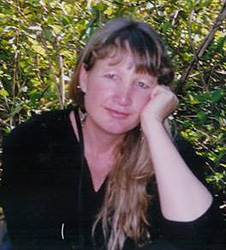 Sydney McKenna (Illustrator) was born in Santa Monica, California in 1953, and has called Florida her home since age 11. She began her painting career in the Sarasota area in the mid- eighties as a mostly self-taught watercolor artist and gained quick success, winning awards and exhibiting in Sarasota Art Galleries. After obtaining a degree in Visual Arts from Eckerd College in St. Petersburg, Florida and making the switch to oil painting in 1996, she attended a semester of graduate studies in fine art at Cortona, Italy through the University of Georgia. Sydney then returned to the United States, where she relocated to St. Augustine and operated the Sydney McKenna Gallery from 1997 to 2013. She sees St. Augustine as the perfect combination of her two favorite locales: European architecture combined with the lush Florida environment
Sydney McKenna (Illustrator) was born in Santa Monica, California in 1953, and has called Florida her home since age 11. She began her painting career in the Sarasota area in the mid- eighties as a mostly self-taught watercolor artist and gained quick success, winning awards and exhibiting in Sarasota Art Galleries. After obtaining a degree in Visual Arts from Eckerd College in St. Petersburg, Florida and making the switch to oil painting in 1996, she attended a semester of graduate studies in fine art at Cortona, Italy through the University of Georgia. Sydney then returned to the United States, where she relocated to St. Augustine and operated the Sydney McKenna Gallery from 1997 to 2013. She sees St. Augustine as the perfect combination of her two favorite locales: European architecture combined with the lush Florida environment
 Don Minson (My Father’s Ashes) is a UVa alumnus, works in Business Administration, and lives in Charlottesville, Va. He’s an accomplished music festival photographer who shoots under the pseudonym Wiley Quixote, and has previously contributed photographic illustrations to the r.kv.r.y. quarterly literary journal. In his spare time, he enjoys listening to music, watching films, drawing, painting, writing poetry, playing guitar, Jungian psychology, and learning how to write prose.
Don Minson (My Father’s Ashes) is a UVa alumnus, works in Business Administration, and lives in Charlottesville, Va. He’s an accomplished music festival photographer who shoots under the pseudonym Wiley Quixote, and has previously contributed photographic illustrations to the r.kv.r.y. quarterly literary journal. In his spare time, he enjoys listening to music, watching films, drawing, painting, writing poetry, playing guitar, Jungian psychology, and learning how to write prose.
 Cris Mulvey (The Unfastening of Winter) was born and raised in Ireland and spent the first half of her life as an educator, activist, and community organizer. Drawn by the beauty of wild nature and its power to feed, heal, and inspire, she moved to Montana where she began to write poetry, short stories, and memoir. Mulvey currently lives in Northern California with her husband Jack, a dog, and two cats. Her work has appeared in a number of journals, including the Naugatuk River Review, the Whitefish Review, Mobius, Last Night and Women’s Voices for Change.
Cris Mulvey (The Unfastening of Winter) was born and raised in Ireland and spent the first half of her life as an educator, activist, and community organizer. Drawn by the beauty of wild nature and its power to feed, heal, and inspire, she moved to Montana where she began to write poetry, short stories, and memoir. Mulvey currently lives in Northern California with her husband Jack, a dog, and two cats. Her work has appeared in a number of journals, including the Naugatuk River Review, the Whitefish Review, Mobius, Last Night and Women’s Voices for Change.
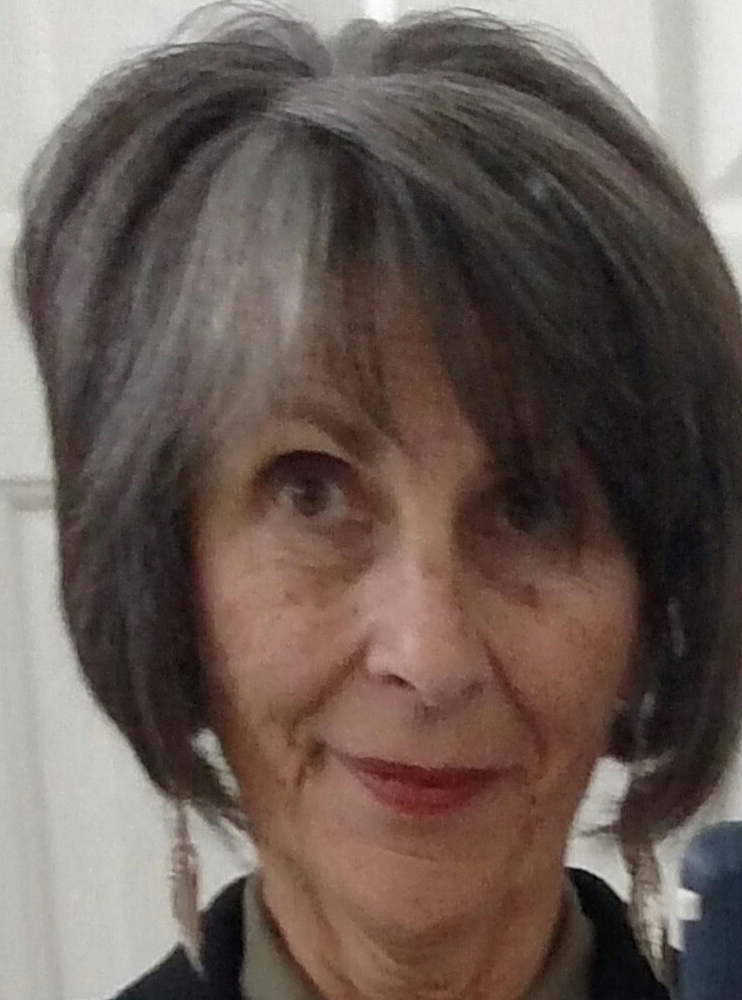 Melanie Perish (Ten and Two) lives in Reno, NV and commutes regularly to Bryan, TX, Northern, CA, and Santa Fe, NM. She is a member of Poets & Writers and Alcoholics Anonymous. She is old and sometimes crabby and does not care that she’s just broken her anonymity. Her poems have recently appeared in the Austin International Poetry Festival anthology, Diversity, The Avocet, Brushfire, and Emerging Poets (Z-Publishing, 2018). Her poetry collection Passions & Gratitudes was published by Black Rock Press in 2011. She is grateful for the generosity of other poets and writers, her history with women’s writing workshops, her online writers exchange, and the current poetry workshops she participates in. She is indebted to small press publications, little magazines, and on-line publications because she knows how much effort these require.
Melanie Perish (Ten and Two) lives in Reno, NV and commutes regularly to Bryan, TX, Northern, CA, and Santa Fe, NM. She is a member of Poets & Writers and Alcoholics Anonymous. She is old and sometimes crabby and does not care that she’s just broken her anonymity. Her poems have recently appeared in the Austin International Poetry Festival anthology, Diversity, The Avocet, Brushfire, and Emerging Poets (Z-Publishing, 2018). Her poetry collection Passions & Gratitudes was published by Black Rock Press in 2011. She is grateful for the generosity of other poets and writers, her history with women’s writing workshops, her online writers exchange, and the current poetry workshops she participates in. She is indebted to small press publications, little magazines, and on-line publications because she knows how much effort these require.
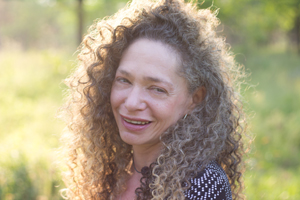 Jaclyn Piudik (Chemotherapy and the Tasmanian Devil) is the author of To Suture What Frays (Kelsay Books 2017) and two chapbooks, Of Gazelles Unheard (Beautiful Outlaw 2013) and The Tao of Loathliness (fooliar press 2005/8). Her poems have appeared in numerous anthologies and journals, including New American Writing, Columbia Poetry Review, Burning House, Barrow Street and Contemporary Verse 2. She received a New York Times Fellowship for Creative Writing and the Alice M. Sellers Award from the Academy of American Poets. Piudik has edited three collections of poetry for award winning Canadian publisher Book*hug. She holds an M.A. in Creative Writing from the City College of New York, as well as a Ph.D. in Medieval Studies from the University of Toronto.
Jaclyn Piudik (Chemotherapy and the Tasmanian Devil) is the author of To Suture What Frays (Kelsay Books 2017) and two chapbooks, Of Gazelles Unheard (Beautiful Outlaw 2013) and The Tao of Loathliness (fooliar press 2005/8). Her poems have appeared in numerous anthologies and journals, including New American Writing, Columbia Poetry Review, Burning House, Barrow Street and Contemporary Verse 2. She received a New York Times Fellowship for Creative Writing and the Alice M. Sellers Award from the Academy of American Poets. Piudik has edited three collections of poetry for award winning Canadian publisher Book*hug. She holds an M.A. in Creative Writing from the City College of New York, as well as a Ph.D. in Medieval Studies from the University of Toronto.
 Rhema Sayers (After) is a retired doctor, now working as a freelance writer with some success. She has had over 40 short stories and historical articles published. She lives with her husband and three dogs in the desert near Tucson.
Rhema Sayers (After) is a retired doctor, now working as a freelance writer with some success. She has had over 40 short stories and historical articles published. She lives with her husband and three dogs in the desert near Tucson.
 Tara Stillions Whitehead (God and Laundry) has had fiction, essays, and hybrid texts published in Chicago Review, Fiction International, Red Rock Review, Burningword Literary Journal, Texas Review, New Orleans Review, Sleipnir, and elsewhere. She has received a Glimmer Train Press Award for New Writers, an AWP Intro Journals Award nomination, and a Pushcart Prize nomination. A former assistant director for film and television, she now lives in Central Pennsylvania, where she teaches English and Film Studies.
Tara Stillions Whitehead (God and Laundry) has had fiction, essays, and hybrid texts published in Chicago Review, Fiction International, Red Rock Review, Burningword Literary Journal, Texas Review, New Orleans Review, Sleipnir, and elsewhere. She has received a Glimmer Train Press Award for New Writers, an AWP Intro Journals Award nomination, and a Pushcart Prize nomination. A former assistant director for film and television, she now lives in Central Pennsylvania, where she teaches English and Film Studies.







